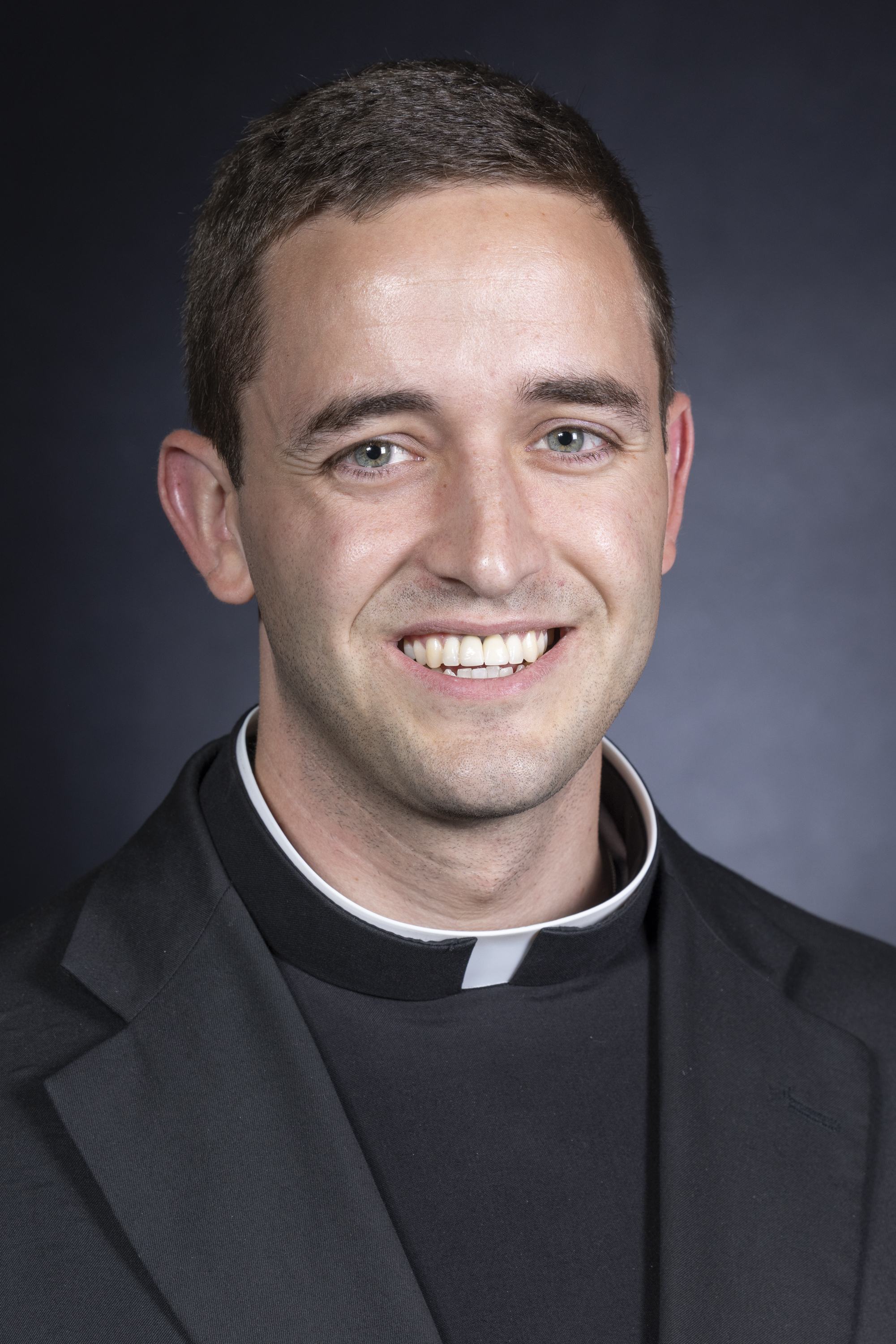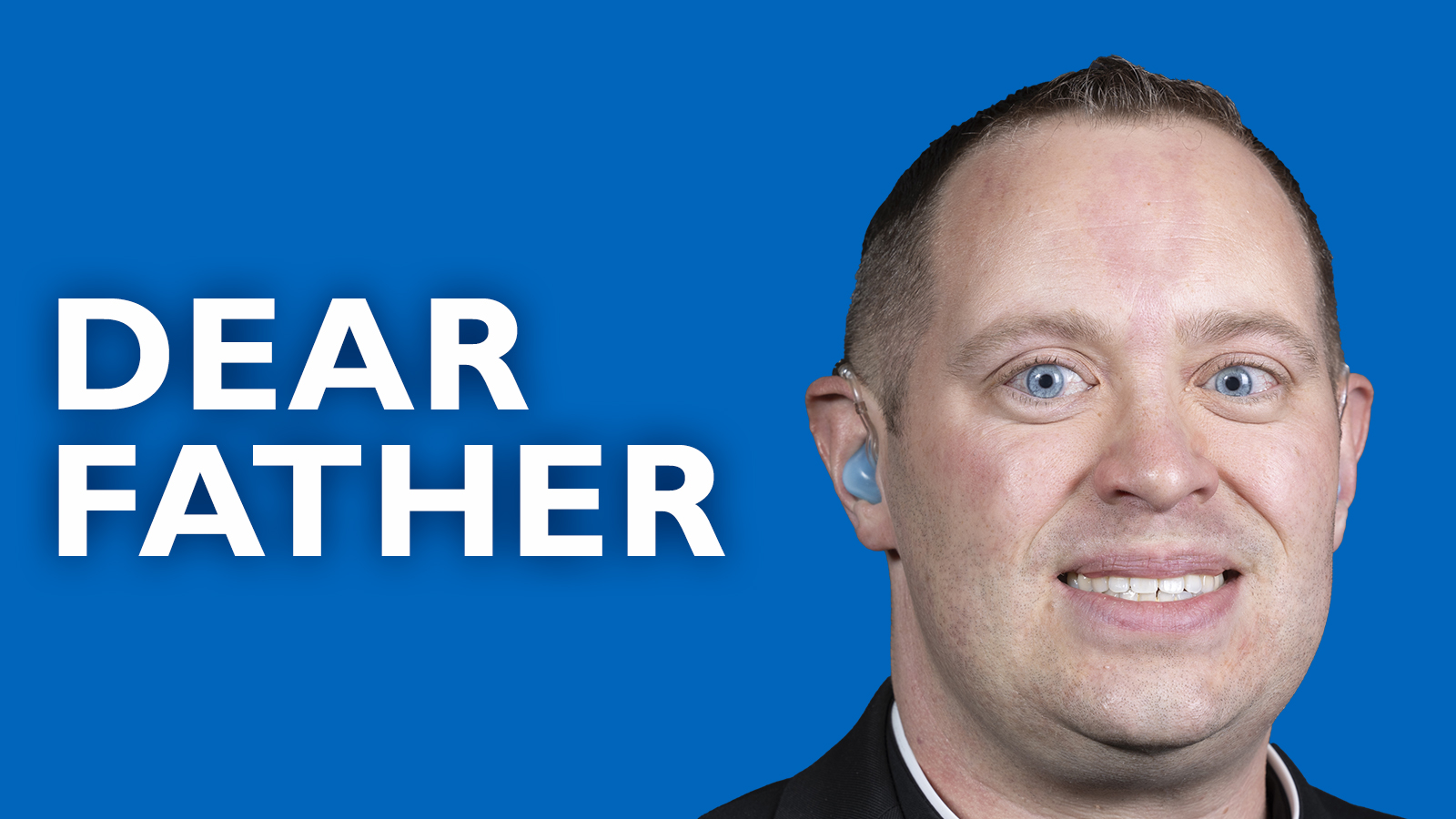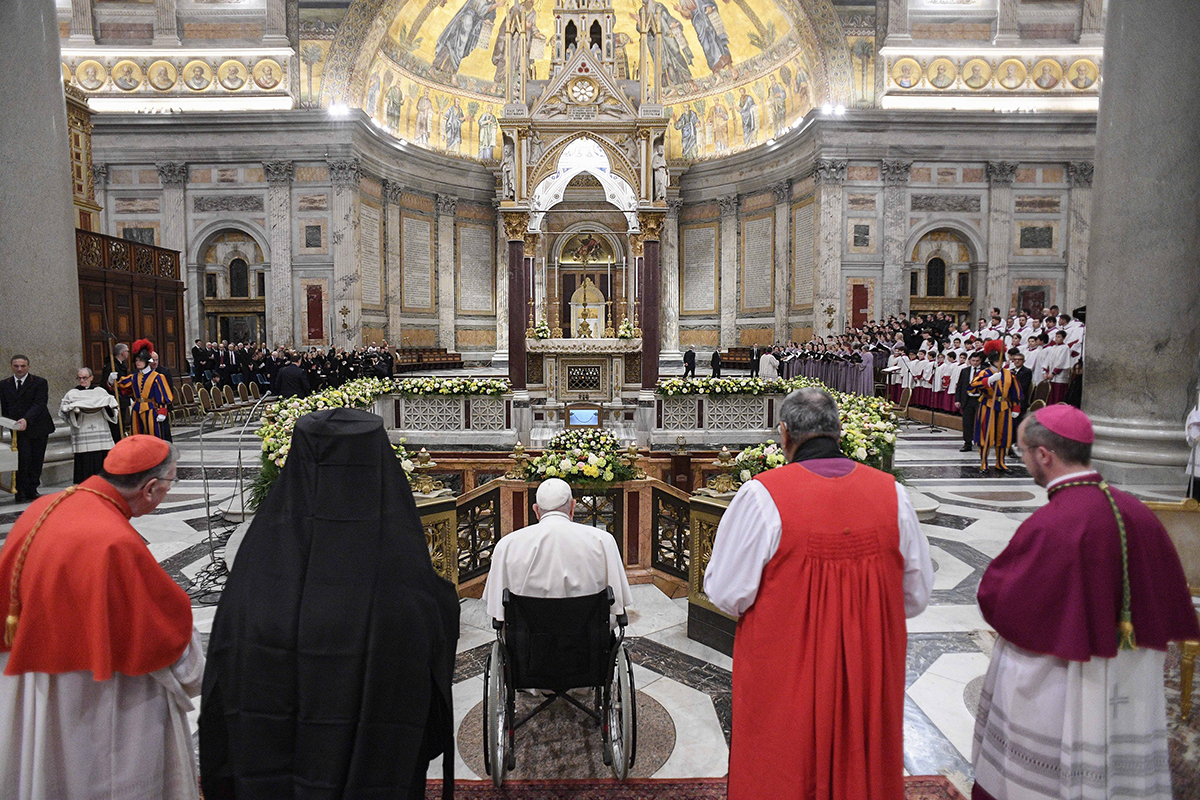DEAR FATHER | The ultimate level of responsibility occurs in union with Jesus’ sacrificial love
What does love have to do with authority? It seems like the more you love the more you want those you love to do whatever they want.

When St. John Paul II was known as “Father Wojtyla,” he formed a group called the srodwisko (phonetically: “shrodovisko”). It was a group of young adults and young families who would camp and hike together and learn from their dynamic shepherd what it means to love and take responsibility in this world. Father Wojtlya wrote a book titled “Love and Responsibility,” a deep and challenging reflection on how unconditional love requires taking on unconditional responsibility for another — just as Jesus’ love was most perfectly revealed as He took responsibility for us, dying on the cross.
Authority and responsibility are not opposed to love; they are love’s ultimate expression. The most basic form of responsibility is individual responsibility, when a child learns to clean up her toys at the end of the day. The second form is familial responsibility, when a teen learns he must stay home to babysit younger siblings for the good of the family. Then, the greatest natural form of responsibility comes with starting a family (the word responsibility is derived from sponsa, Latin for spouse). A spouse takes unconditional, lifelong responsibility for the material and spiritual well-being of all his family members.
In our faith, a clear analogy measures the depth of our unconditional love for one another. The level of individual responsibility entails practicing our faith at an individual level — reliably attending Sunday Mass, going to reconciliation when we have committed a mortal sin and living a moral life according to the teachings of our faith. Familial responsibility comes when one recognizes that the Church is not a self-service convenience store but a family participating actively in the life of the Church for the good of one’s brothers and sisters in faith. This could include going on a retreat, helping in a ministry or joining a prayer group to build up the faith community.
The most mature form of spiritual responsibility is, again, spousal: when one takes ownership not only for one’s faith and that of one’s friends but extends responsibility to each person one encounters, just like Jesus, praying and sacrificing for one’s coworkers, the homeless or mothers in crisis pregnancies.
The ultimate level of responsibility occurs in our deeper spiritual union with Jesus’ sacrificial love. When we feel the weight of this responsibility, we have truly begun to discover the meaning of the term “unconditional love.”
Father Charlie Archer is associate pastor of St. Peter Parish in Kirkwood.
When St. John Paul II was known as “Father Wojtyla,” he formed a group called the srodwisko (phonetically: “shrodovisko”). It was a group of young adults and young families who … DEAR FATHER | The ultimate level of responsibility occurs in union with Jesus’ sacrificial love
Subscribe to Read All St. Louis Review Stories
All readers receive 5 stories to read free per month. After that, readers will need to be logged in.
If you are currently receive the St. Louis Review at your home or office, please send your name and address (and subscriber id if you know it) to subscriptions@stlouisreview.com to get your login information.
If you are not currently a subscriber to the St. Louis Review, please contact subscriptions@stlouisreview.com for information on how to subscribe.




